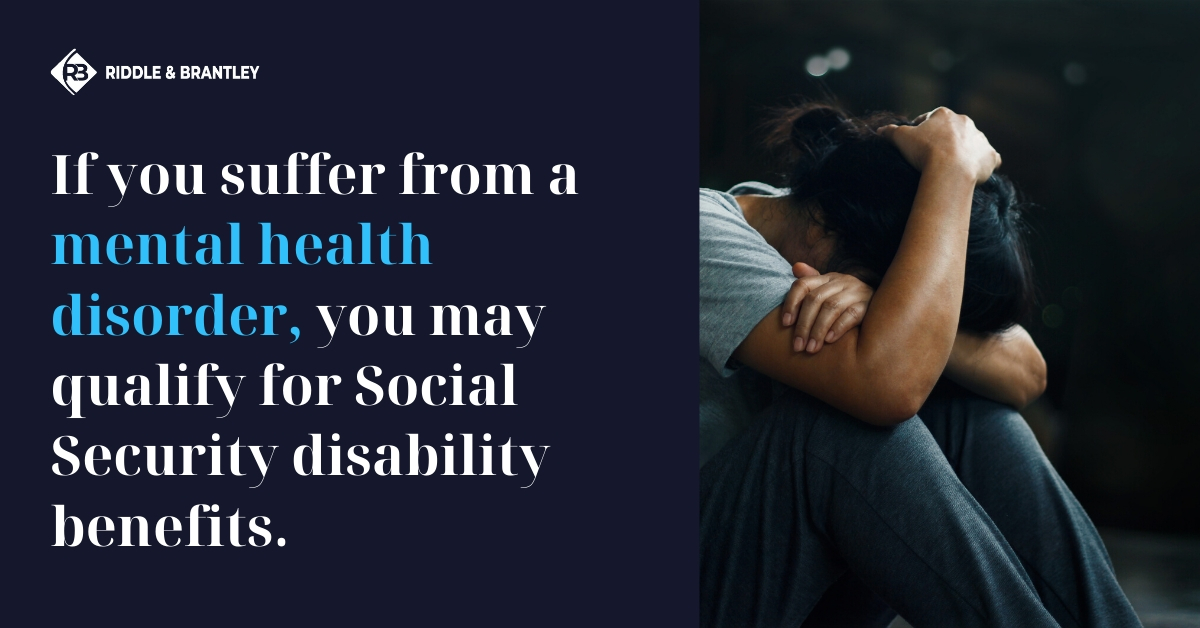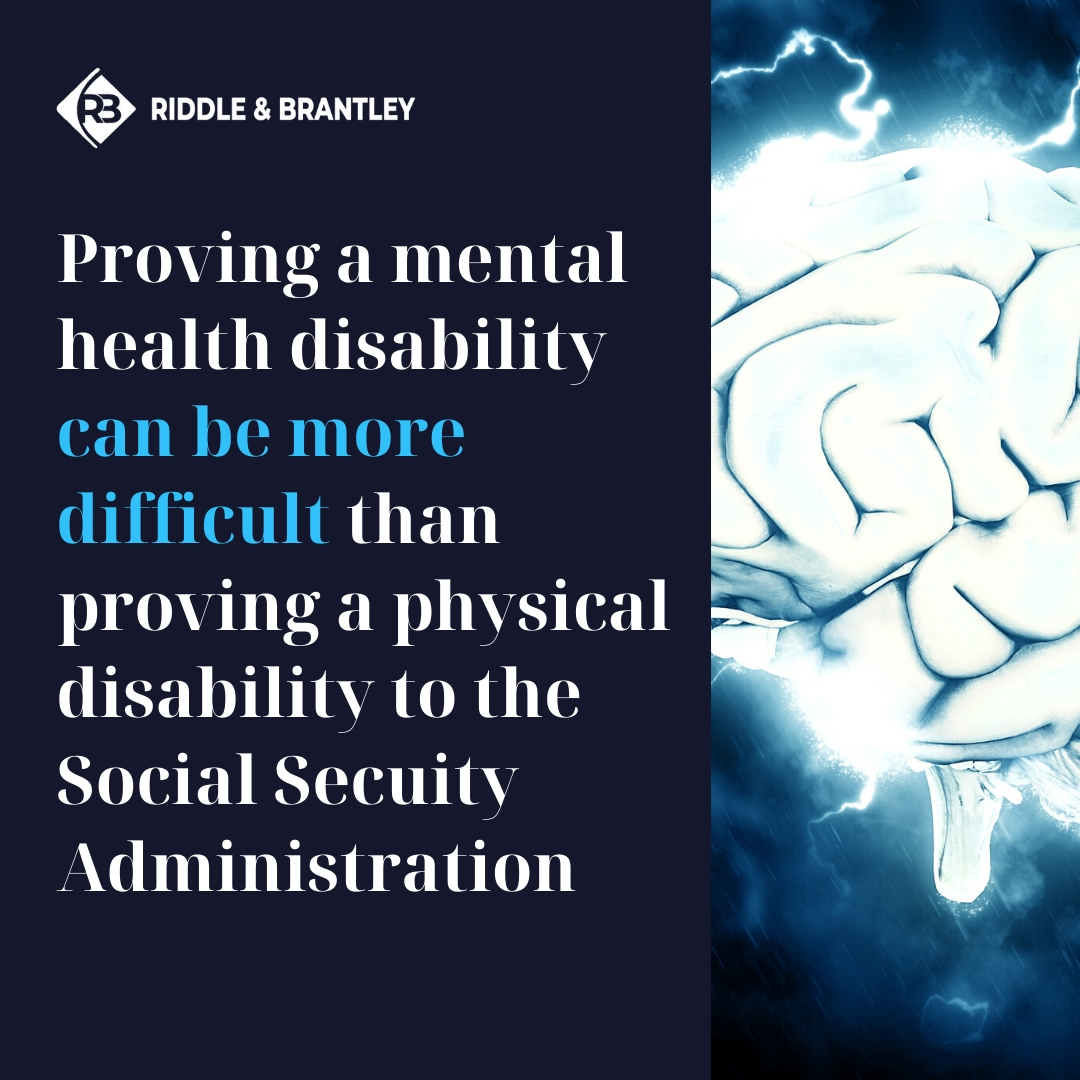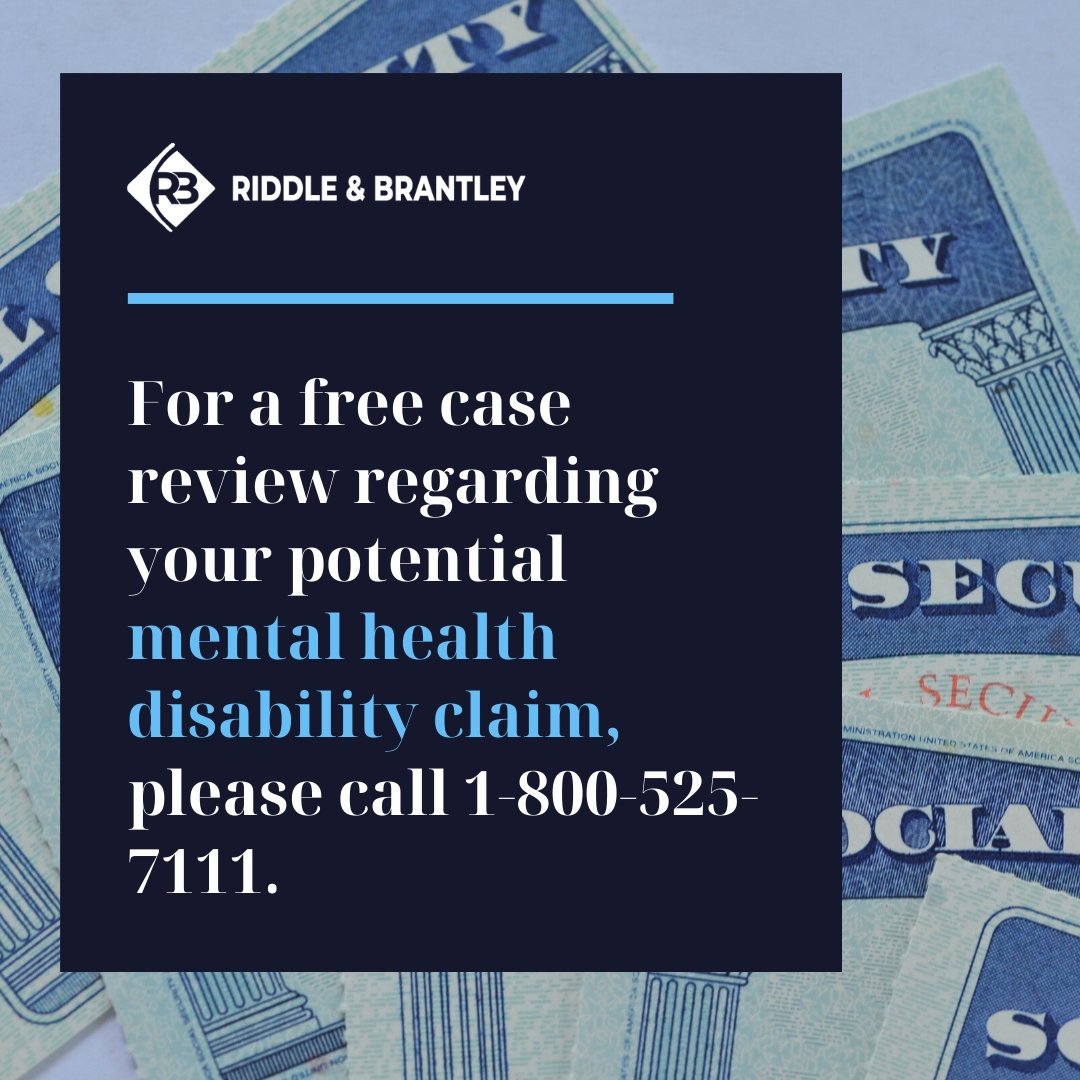It’s a question that has perhaps never been more relevant. In this blog post, we’ll outline some things you need to know when filing for disability for mental health. The response of North Carolina (like most states) to the coronavirus pandemic has included things like self-quarantining and social distancing, measures designed to keep people from being in close proximity to one another. People who are already struggling with mental health disorders and addiction issues are especially hard hit when they lose their means of social support like counseling and therapy sessions, recovery meetings, and simple time with friends and family. When mental health disorders become so severe that they prevent the person from working, they may consider filing an application for Social Security disability benefits for mental health disorders.
So, can a person qualify as disabled based solely on mental health conditions?
 The short answer is “yes,” but it is more difficult to collect disability for mental health impairments than physical ones because the severity of mental health conditions can be very difficult to measure objectively.
For example, it’s relatively easy to prove disabilities like a bad back — we look at x-ray and MRI images and we can see it. Proving something like bipolar disorder, schizophrenia, or other mental health disorders for disability is not as clear-cut.
So how does a person prove that his or her mental health impairment is severe enough to be “disabling” under Social Security Administration (“SSA”) rules?
As with physical impairments, there are two ways under the SSA’s system to prove that a mental impairment is severe enough to warrant an award of Social Security disability benefits.
The short answer is “yes,” but it is more difficult to collect disability for mental health impairments than physical ones because the severity of mental health conditions can be very difficult to measure objectively.
For example, it’s relatively easy to prove disabilities like a bad back — we look at x-ray and MRI images and we can see it. Proving something like bipolar disorder, schizophrenia, or other mental health disorders for disability is not as clear-cut.
So how does a person prove that his or her mental health impairment is severe enough to be “disabling” under Social Security Administration (“SSA”) rules?
As with physical impairments, there are two ways under the SSA’s system to prove that a mental impairment is severe enough to warrant an award of Social Security disability benefits.
- One way to qualify for disability for mental health is to show that the mental health disorder or impairment meets one of the definitions in the “Listings” of impairments maintained by the SSA.
- The other way to qualify for disability for mental health is to demonstrate that your mental health impairment is so limiting to your ability to function in daily life that you could not reasonably be expected to complete a normal 40-hour work week on an ongoing basis.
 The first route – meeting a Listing – requires evidence from a psychiatrist or other qualified medical professional that your impairment meets some very specific criteria for mental health conditions that are viewed as automatically, inherently disabling.
Think of this in terms of a person who must be institutionalized, or close to it, to avoid harming him or herself or others. There are a number of specific disorders in the “Blue Book” Listings, including schizophrenia, bipolar disorder, and severe autism, but they require high levels of proof to apply to a specific situation.
Inability to Work Due to Reduced "Residual Functional Capacity"
The second route – inability to work because of a significantly limited “Residual Functional Capacity” – is less clear-cut, but still a viable way to win your case.
When seeking disability for mental health disorder with this approach, the key is to have the support of your psychiatrist, backed up by testimony from friends and family. These individuals must state that you are severely limited in your ability to engage in normal, day-to-day activities. If you can prove a severe level of limitation to a judge due to things like depression and anxiety, you can win your case.
The first route – meeting a Listing – requires evidence from a psychiatrist or other qualified medical professional that your impairment meets some very specific criteria for mental health conditions that are viewed as automatically, inherently disabling.
Think of this in terms of a person who must be institutionalized, or close to it, to avoid harming him or herself or others. There are a number of specific disorders in the “Blue Book” Listings, including schizophrenia, bipolar disorder, and severe autism, but they require high levels of proof to apply to a specific situation.
Inability to Work Due to Reduced "Residual Functional Capacity"
The second route – inability to work because of a significantly limited “Residual Functional Capacity” – is less clear-cut, but still a viable way to win your case.
When seeking disability for mental health disorder with this approach, the key is to have the support of your psychiatrist, backed up by testimony from friends and family. These individuals must state that you are severely limited in your ability to engage in normal, day-to-day activities. If you can prove a severe level of limitation to a judge due to things like depression and anxiety, you can win your case.
What does all this mean in practical terms?
In order to win your disability claim based on mental illness you must be able to show a judge that:- You haven’t worked in a long time, preferably at least a year, because your symptoms prevent you from doing the things a person needs to be able to do to work at even the simplest, easiest of jobs.
- You have been treating with a psychiatrist and following his or her orders for medication, therapy, and whatever else has been recommended.
- Your impairment meets one of the definitions in the Listings OR your ability to perform work-related functions like showing up for work, completing an eight-hour workday, getting along at least somewhat with others, and paying attention to what you are supposed to be doing, are so impaired that you cannot do them on a continuing basis.
Do you have a mental health disability claim?
 For a FREE consultation with a NC disability attorney serving Raleigh, Durham, Fayetteville, Goldsboro, Greenville, Kinston and Jacksonville, call 1-800-525-7111.
Please note that in-person consultations are available at our Durham, Fayetteville, Greenville and Kinston locations by appointment only.
Studies have shown that those applying for disability who are represented by a lawyer are approved roughly 60 percent of the time, versus just a 34 percent average approval rate for those who do not hire an attorney.
We understand what you’re going through.
Call 1-800-525-7111 today and let’s review your case.
You may qualify for Social Security disability for mental health reasons and we would love to help however we can.
Justice Counts for North Carolinians with disabilities.
You don’t have to do this alone.
For a FREE consultation with a NC disability attorney serving Raleigh, Durham, Fayetteville, Goldsboro, Greenville, Kinston and Jacksonville, call 1-800-525-7111.
Please note that in-person consultations are available at our Durham, Fayetteville, Greenville and Kinston locations by appointment only.
Studies have shown that those applying for disability who are represented by a lawyer are approved roughly 60 percent of the time, versus just a 34 percent average approval rate for those who do not hire an attorney.
We understand what you’re going through.
Call 1-800-525-7111 today and let’s review your case.
You may qualify for Social Security disability for mental health reasons and we would love to help however we can.
Justice Counts for North Carolinians with disabilities.
You don’t have to do this alone.